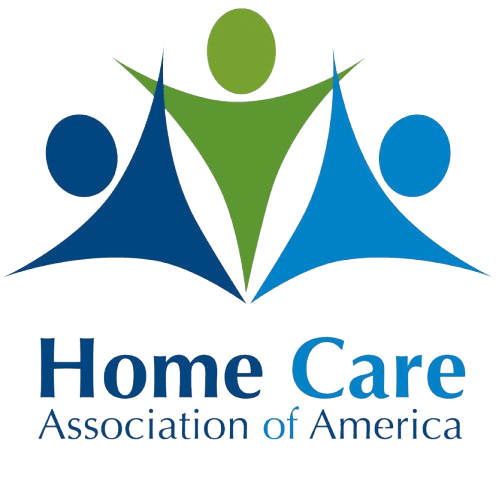
As we age, nutrition becomes even more vital to maintaining good health and overall well-being. However, seniors often face unique challenges that make it harder to meet their dietary needs. With the right guidance and support, seniors can overcome these obstacles and enjoy the benefits of a well-balanced diet. Personal care at home providers can play a critical role in helping older adults achieve their nutrition goals, making mealtime both enjoyable and nourishing.
Why Nutrition Matters for Seniors
Proper nutrition supports physical strength, cognitive function, and immune health. Seniors who maintain a healthy diet are better equipped to manage chronic conditions, stay active, and maintain independence. Yet, many older adults face barriers such as decreased appetite, difficulty chewing or swallowing, and limited mobility, which can lead to nutritional deficiencies.
Common Nutritional Deficiencies in Seniors
Many seniors are at risk of being deficient in essential nutrients. Here are some of the most common deficiencies and how they affect health:
1. Vitamin D
- Importance: Supports bone health and immune function.
- Deficiency Risks: Can lead to osteoporosis, muscle weakness, and an increased risk of falls.
- Sources: Fortified milk, fatty fish, and moderate sunlight exposure.
2. Calcium
- Importance: Essential for strong bones and teeth.
- Deficiency Risks: Increases the risk of fractures and bone-related conditions.
- Sources: Dairy products, leafy greens, and fortified plant-based milks.
3. Vitamin B12
- Importance: Necessary for red blood cell production and nerve function.
- Deficiency Risks: Can cause fatigue, memory issues, and nerve damage.
- Sources: Lean meats, eggs, fortified cereals, and supplements.
4. Fiber
- Importance: Promotes healthy digestion and helps regulate blood sugar.
- Deficiency Risks: Can lead to constipation and gastrointestinal discomfort.
- Sources: Whole grains, fruits, vegetables, and legumes.
5. Protein
- Importance: Helps maintain muscle mass and repair tissues.
- Deficiency Risks: Can result in muscle loss and reduced strength.
- Sources: Eggs, lean meats, fish, beans, and nuts.
Fulfilling Nutritional Needs Through Food
Meeting nutritional needs doesn’t have to be complicated. Simple adjustments to meals and snacks can make a significant difference in a senior’s health:
- Prioritize Variety: Incorporate fruits, vegetables, whole grains, lean proteins, and healthy fats into daily meals.
- Focus on Nutrient-Dense Foods: Choose options like spinach, sweet potatoes, salmon, and quinoa for meals packed with vitamins and minerals.
- Stay Hydrated: Encourage regular water intake to prevent dehydration, which can exacerbate health issues.
- Small, Frequent Meals: For seniors with reduced appetites, smaller meals spread throughout the day can be easier to manage.
How Personal Care at Home Providers Can Help
Personal care at home providers offer invaluable support to seniors who need help maintaining proper nutrition. They address the unique challenges older adults face by:
1. Meal Planning and Preparation
Caregivers can help seniors create meal plans tailored to their dietary needs and preferences. They can prepare nutritious meals that are easy to eat and appealing.
2. Grocery Shopping
Seniors who find it difficult to shop can rely on caregivers to handle grocery shopping. This ensures access to fresh, healthy ingredients while reducing stress.
3. Monitoring Eating Habits
Personal care providers can keep track of meal times and portion sizes, ensuring seniors are eating regularly and getting the nutrients they need.
4. Encouraging Hydration
Caregivers can remind seniors to drink water throughout the day and provide hydrating snacks such as fruits, soups, and smoothies.
5. Adjusting to Dietary Restrictions
For seniors with specific medical conditions, caregivers can prepare meals that meet dietary requirements while still being tasty and satisfying.
The Role of Nutrition in Quality of Life
Good nutrition isn’t just about staying healthy—it also enhances quality of life. Seniors who eat well often feel more energetic, stay more engaged in activities, and experience fewer health complications. With the support of personal care at home providers, seniors can enjoy meals that nourish both their bodies and their spirits.
If you or a loved one is living with glaucoma and could benefit from personal care at home in Stockton, CA, call the professionals at Provident Care at 209.578.1210. Together, we can create a supportive environment that prioritizes health, well-being, and quality of life.
- Provident Care Team – Bosses Day 2025 Tribute - May 6, 2025
- Five Activities Involving Music That Seniors Can Enjoy - May 2, 2025
- Simple Ways to Show You Care During Older Americans Month - April 25, 2025



